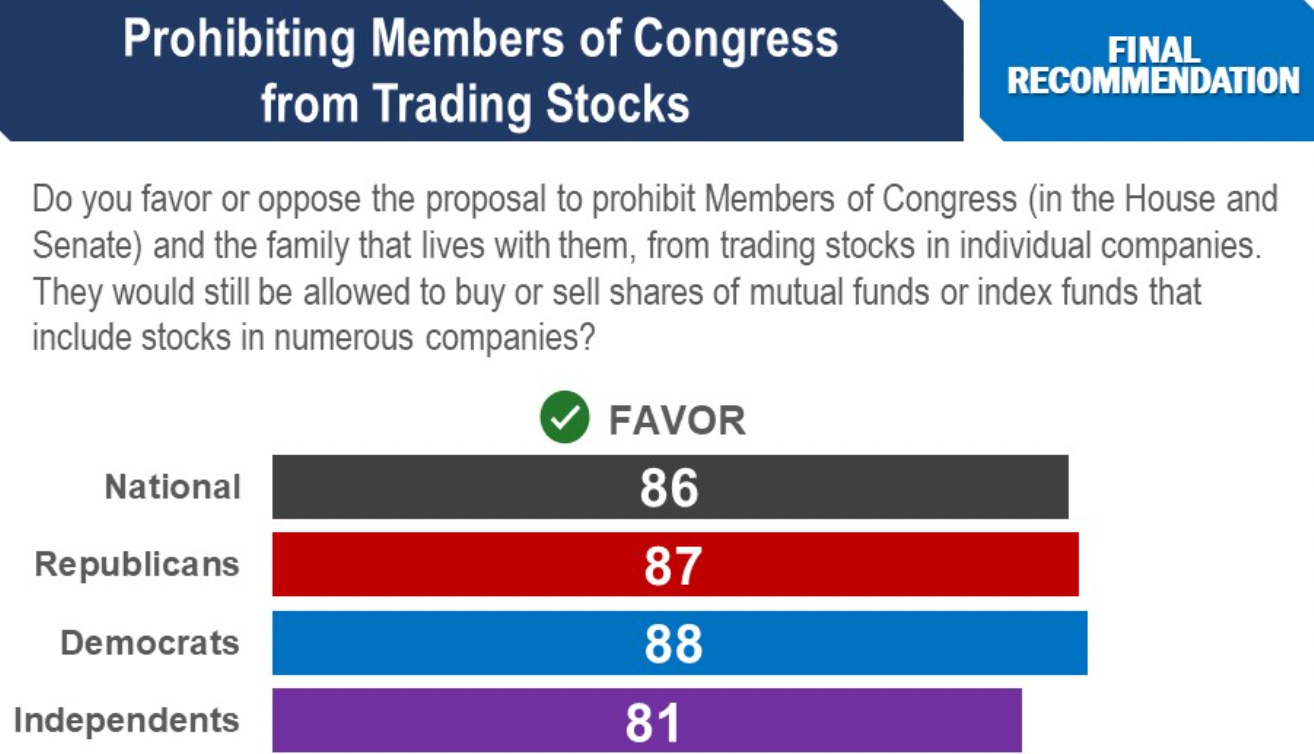On March 12, Bloomberg reported that the Department of Defense was canceling a $2.5 billion grant to chip-maker Intel. The money was supposed to make Intel "a dedicated supplier of chips for military and intelligence needs, designating a so-called Secure Enclave within the company’s factory." While it is possible that Intel may be able to recover some or all of the funds from the Commerce Department, according to Bloomberg, the announcement could "limit the total amount that Intel has been expecting to get in federal funding."
After the news broke, Intel's stock "slipped as much as 1.7% in late trading." Overall, Intel's stock has declined nearly 6% in the days after the announcement.
Several members of Congress, and their families, sold significant holdings in Intel stock in advance of the news. Senator Tommy Tuberville (R-AL), a member of the Armed Services Committee, sold up to $50,000 in Intel stock options on January 24, 2024. (Congressional stock trades are reported only in ranges.) The options were for the right to buy Intel shares at $45. Intel was trading at over $49 on the day Tuberville sold the stock. When the market closed on Monday, the same stock was trading at less than $43.
A spokesperson for Tuberville told Popular Information that the Senator "has long had financial advisors who actively manage his portfolio without his day-to-day involvement." Asked if that meant that Tuberville had no involvement in the sale of Intel options on January 24, the spokesperson did not respond. Tuberville's spokesperson also ignored a question about when Tuberville first learned that the Defense Department was canceling Intel's $2.5 billion grant.
Tuberville was not the only member of Congress connected to well-timed transactions of Intel stock. Senator Richard Blumenthal (D-CT), who is also a member of the Armed Services Committee, reported that his spouse sold up to $500,000 of Intel stock on December 29, 2023. Blumenthal's office did not respond to a request for comment.
Congressman Michael McCaul (R-TX), chairman of the House Committee on Foreign Affairs, reported that his spouse sold up to $50,000 of Intel stock on January 19, 2024. McCaul also reported that a dependent child sold up to $15,000 of Intel stock on the same date. A spokesperson for McCaul sent Popular Information a statement from McCaul's attorney, Elliott Berke: "Congressman McCaul did not purchase these stocks. Rather, his wife has assets she solely owns, and a third-party manager made the purchase without her direction." But both transactions were reported as sales of Intel stock, not purchases. Asked to clarify, McCaul's spokesperson said, "the third party manager handles both purchases and sales" and "none of the stocks are the chairman's."
There is no evidence that any of these members used information they learned from their official positions to guide these stock sales. But it underscores longstanding concerns about real and perceived ethical issues when members of the House and Senate trade stocks.
Under federal law, when a federal government employee owns stock in a company, the employee is prohibited from participating in any matter that may impact the financial interests of that company — whether or not the matter can plausibly impact the stock price. It is considered a conflict of interest and the employee must recuse themselves. The restriction also applies to any stock owned by a spouse or minor child of the employee. Each violation of the law carries a maximum penalty of five years in jail and a fine of $50,000.
Members of Congress have more power and access to more information than a typical member of the federal bureaucracy. Yet, under the law, members of Congress are not considered employees of the federal government. They are free to actively trade an individual stock
The only restrictions on Congressional stock trading were imposed by the Stop Trading on Congressional Knowledge Act of 2012 (STOCK Act). The law only prohibits trading stock based on inside information—a term that is difficult to pin down. It is nearly impossible to prove that a member of Congress executed a trade based on information the member learned in a confidential briefing as opposed to other publicly available information.
But potential conflicts related to Congressional stock trading are a systemic problem. A 2022 investigation by the New York Times found "97 lawmakers or their family members bought or sold financial assets over a three-year span in industries that could be affected by their legislative committee work." Moreover, "studies consistently show that the investments of members of Congress outperform the market."
In recent years, Republican and Democratic leaders have pledged to address the problem by banning members of Congress and their families from trading in individual stocks. It's a ridiculously popular policy. According to a July 2023 survey, 86% of Americans support a ban.
These promises, however, have not translated into action.
In February 2022, former House Speaker Nancy Pelosi (D-CA) "greenlighted a plan to craft legislation that would prohibit members of Congress from trading stock." Pelosi, who previously opposed the ban, directed the House Administration Committee to draft the rules and signaled a vote would be held before that year's midterm elections. But the legislation wasn't released until late September 2022, just before Congress was scheduled to take an extended recess before the election. The legislation was also filled with loopholes, including allowing members to evade the ban completely by establishing a "fake blind trust." Congress never voted on the legislation. Pelosi said no vote occurred because the bill lacked support for passage.
In July 2022, former House Speaker Kevin McCarthy (R-CA), who replaced Pelosi as Speaker when Republicans took control of the House, said he would "bring trust back to this institution" by banning members of Congress from trading individual stocks. But, a year later, McCarthy had done nothing. Several Democratic members of Congress who supported a stock trading ban wrote McCarthy in July 2023, noting that he had "put 215 bills and resolutions on the floor" but had "not acted on your promise." A few months later, right-wing Republicans ousted McCarthy from the speakership.
McCarthy's replacement, Speaker Mike Johnson (R-LA), has not spoken publicly about Congressional stock trading. In January 2024, a bipartisan group of Representatives wrote to Johnson and Minority Leader Hakeem Jeffries (D-NY) asking them to "bring a bill to the floor for a vote to end stock trading by Members of Congress." There is no indication that they received a public reply, and there are no signs that a stock trading ban will be considered this Congress.
Subscribe to Popular Information
Independent accountability journalism.


